Luffness Mains Farming

Luffness Mains is an arable farm, growing top quality potatoes, carrots, beans, cereals and environmental schemes in a sustainable way
Luffness Mains is an arable farming business situated in the fertile countryside of East Lothian. Over 1000 acres of Grade 1 or 2 land is farmed by Luffness Mains; it is productive and intensively cropped. Our principal crop is the potato, we are passionate about the nation’s favourite vegetable and we are recognised as specialists in this area. Luffness Mains has been a leader in the potato growing industry for over 50 years.
Luffness Mains strives to be modern, innovative and creative; we are able to achieve this with the benefit of generations of farming experience, the expertise of our team members and the support from our partners. We offer young people opportunities to develop their careers and give them a chance to share their new ideas with us.
Our philosophy is simple: we provide our customers with excellent produce, whilst maintaining a conscientious policy of pro-active environmental stewardship. This is why we have been recognised with a LEAF Marque accreditation – the gold standard in the UK for the practice of Integrated Farming.
The farming company has been run by Geert Knottenbelt as the farm manager since 2009 with his son Graham Knottenbelt since 2011, with a long career specialising in growing potatoes.

How we farm at Luffness Mains

Crops we grow and Markets we supply
The humble potato is the main crop at Luffness Mains – about 400 acres are grown in the fields of East Lothian & other areas in central Scotland. We are able to supply potatoes to our customers both in the growing season straight from the field, or out of season from our cold stores. We specialise in supplying early varieties of potato from as early as July, due to our gentle coastal climate.
The soils of East Lothian lend themselves to producing the perfect skin finish, size and shape to fill the shelves with fresh potatoes in the main retailers. During September and October, the Luffness team expands with several contractors and extra temporary staff. We are equipped to harvest up to 7,000 tonnes of potatoes overall. Every tonne is labelled and about 3000 tonnes stored in boxes for sale over the following 8 months.
Luffness Mains potatoes are normally available every day of the year for our customers to enjoy.


Potatoes


What we grow
Earliest varieties are Maris Peer (salad), Marfona, and Sylvana (Whites), harvested in July and August. Delicious boiled in their skin for a truly fresh flavour. In 2020 we are also trying out Kingsman and Harry as general whites.
Salads grown are Maris Peer and Gemson harvested July to Early September. Firm, set skin, moist texture, small under 42mm in size, perfect for the summer BBQ weather. We also have Baby Lou salads for storage.
Maincrop varieties are Marfona, Estima, Vales Sovereign, Maris Piper, Cultra and Saxon (others varying from year to year) – harvested August to October. Firm, set skin, with large baker content over 65mm in size. Perfect for baked, boiled, roasted or mashed potatoes.
Classified Seed of a few varieties is grown as home saved for planting the following year and also for other customers.
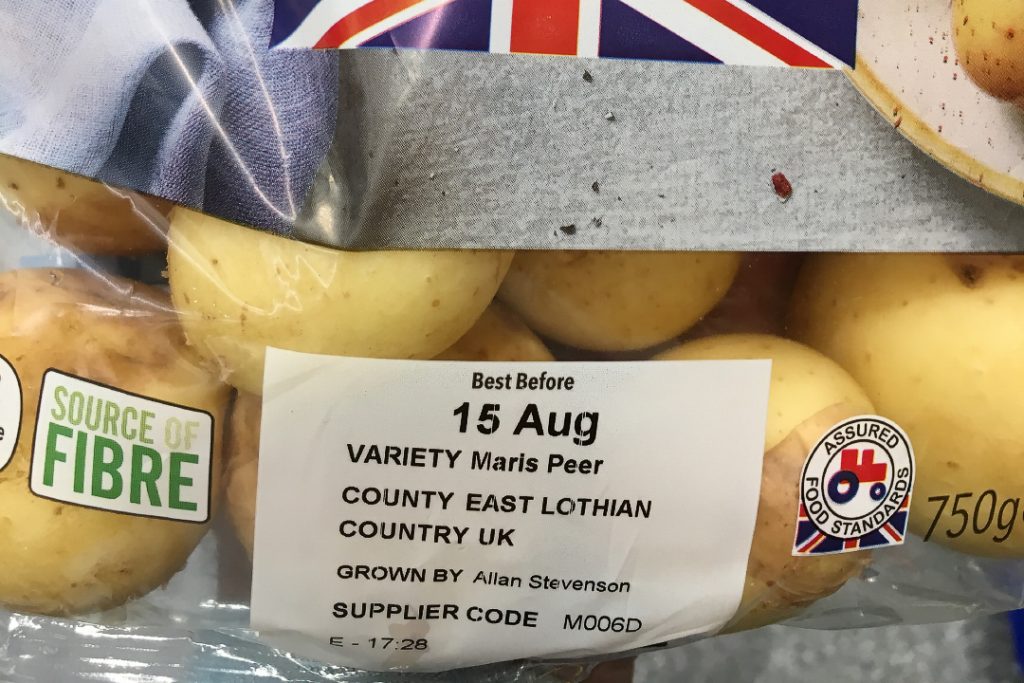
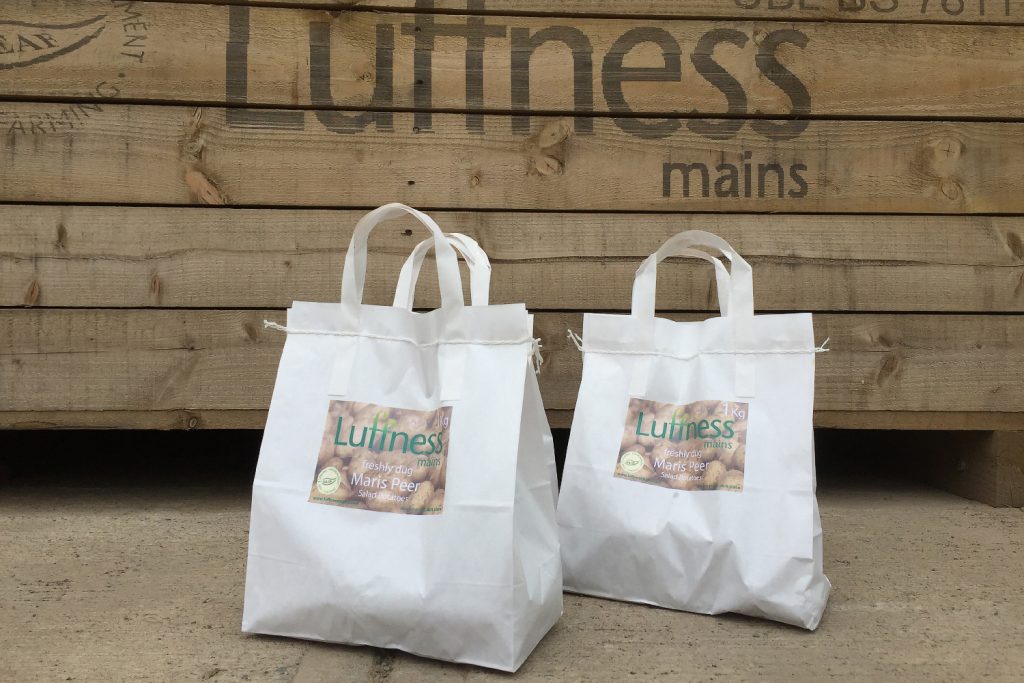
Markets
Over the years we have supplied all potato markets, split between pre-packing, processing and seed.
Currently, our focus remains where it has always been on the pre-packing market for retail and food service customers. In the past we were able to provide first earliest in mid-June for retail markets, but now these are sourced from abroad and England as local provenance is no longer a priority for them, despite consumer demand for this, so we provide as many potatoes to local shops as possible from June and throughout the year. The demand for a Scottish supply to retail remains unfulfilled, except for some Ayrshires, but only to certain markets.
Contact the farm manager Geert Knottenbelt if you are interested in local or larger contract supply with LEAF Marque assurance and East Lothian provenance.
We have recently exited the processing sector for crisping and chipping after many years of unprofitable contract prices and unreliable customers. Also, in Scotland we are too distant from the UK processing factories which are all in England, and the haulage costs were expensive, reducing our competitiveness.
Carrots
We have been growing carrots in East Lothian for several years on the lightest land we have on the farm and nearby. They are all supplied to customers in England mostly for the food service market. Carrots are sown in May and most are harvested in the months up to Christmas, before the frost arrives and causes damage. As carrots have to be stored in the field, not in a store like potatoes, we have to cover them in a plastic sheet topped with a thick blanket of straw. These are kept wrapped up until April and May the following year and then harvested.
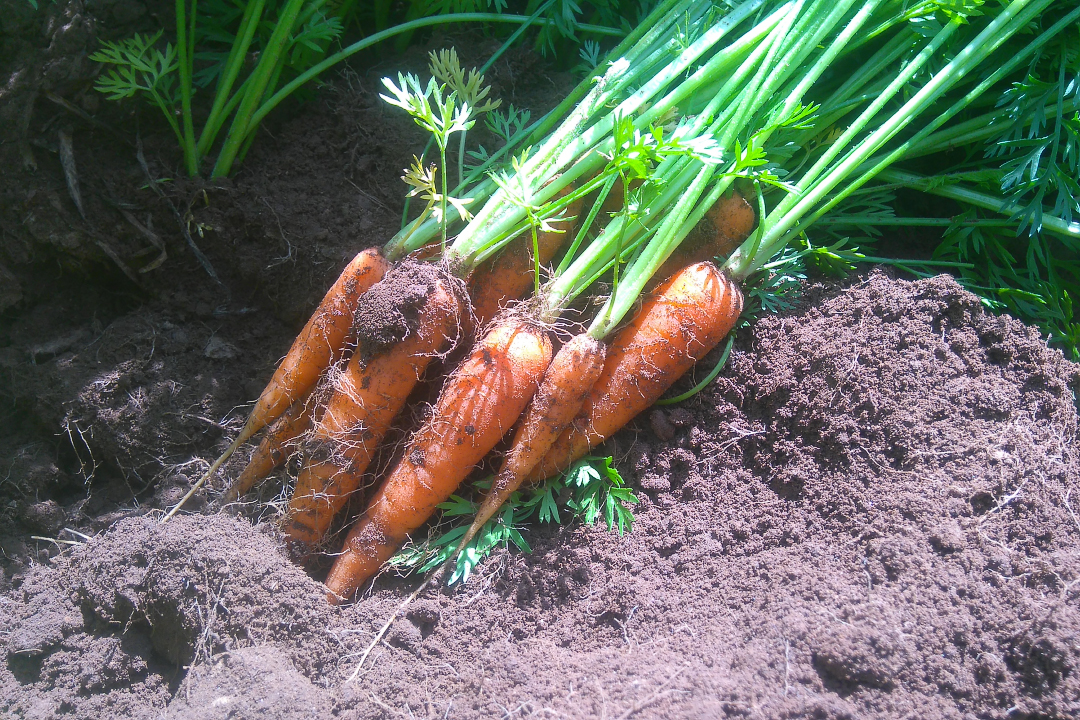

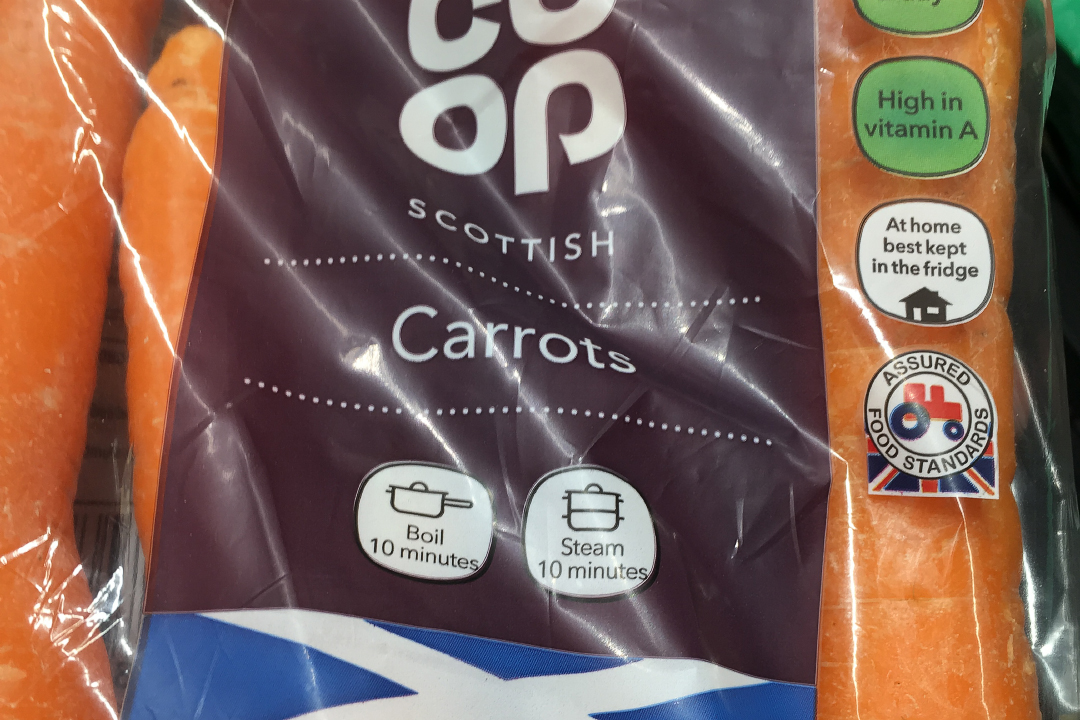
Combinable crops
Our only cereal crop is wheat. We grow no barley or oilseed rape. We have winter and spring drilled wheats all supplied to Frontier Agriculture and some varieties grown for replanting as seed, supplied to local companies.
Spring and winter wheat production is supplemented with field or faba beans, which have been primarily used for animal feed. However, the grain quality has become increasingly important as crops are exported to North Africa and the Middle East for human consumption. We have been successful in getting the protein levels high enough to supply this market.



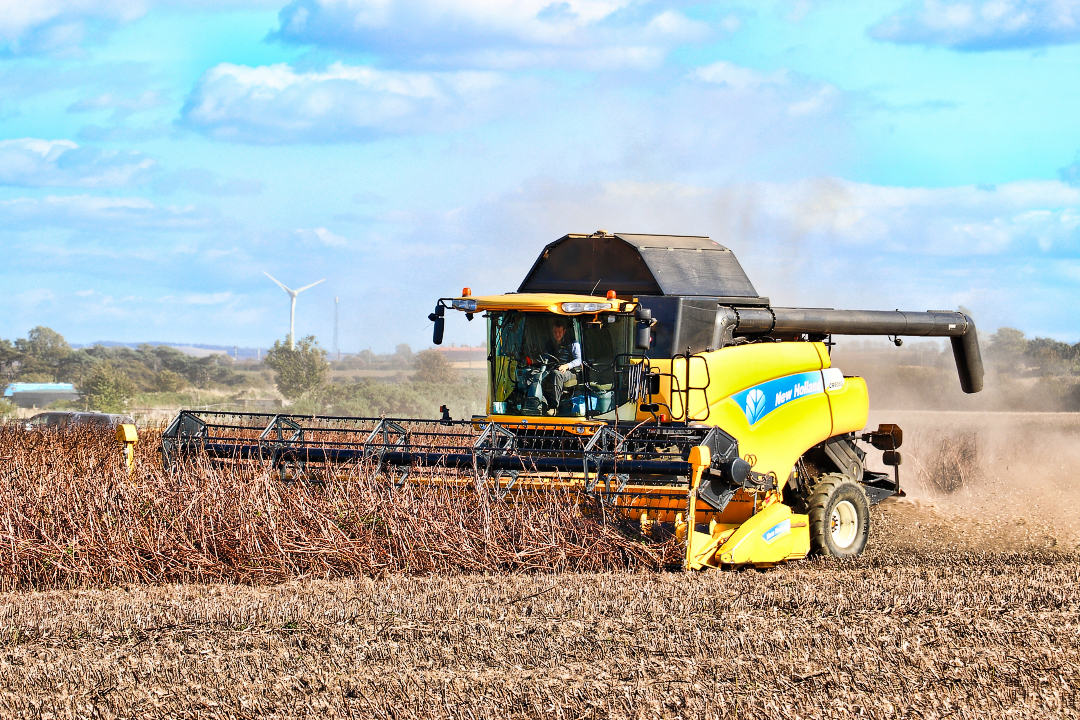
Vegetables
Our lighter irrigated soils provide for various other crops alongside the root crops. These include Leeks, Brussel Sprouts, and Cabbage. These vegetable crops are grown in partnership with leading local vegetable suppliers for the Scottish fresh retail market.
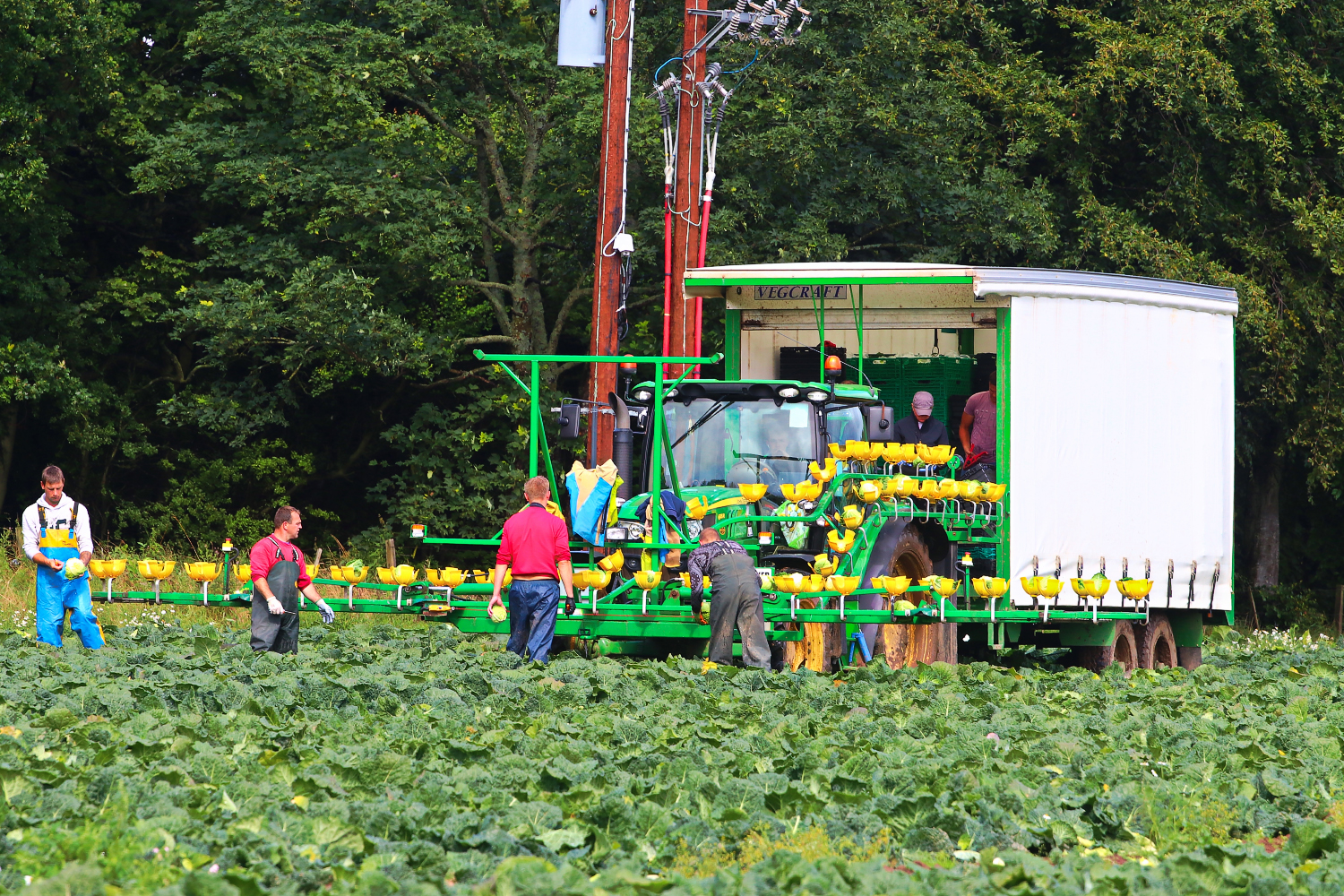
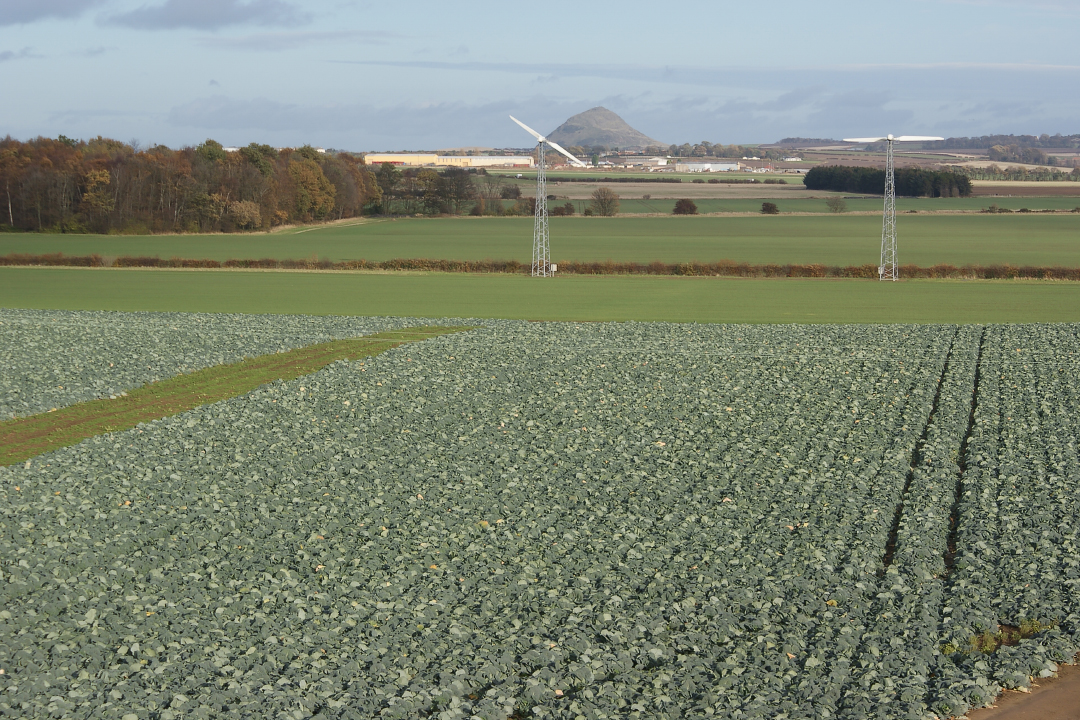

Sustainability and Community Engagement

We are LEAF Marque accredited as well as accredited for every other farm assurance scheme in the UK, so we meet the sustainability criteria of every retailer. This the gold standard of farm assurance because it is uniquely about sustainable agriculture and the journey of continuous improvement.
The integration of commercial farming with environmental stewardship.
We built a LEAF Marque room into the new store in 2010 which is a staff & training room and space for communication to a wide range of people from school kids, to local tattie enthusiasts and also groups of international visitors, especially from China. It has graphics to explain what LEAF Marque stands for and what we do to protect and enhance our priority species on the farm, watercourses, hedgerows, field margins and so on. Also, about our approach to sustainable farming techniques and practices, covering soil and water management, use of precision farming & crop monitoring technologies, energy efficiency, renewables, waste & recycling and so on.
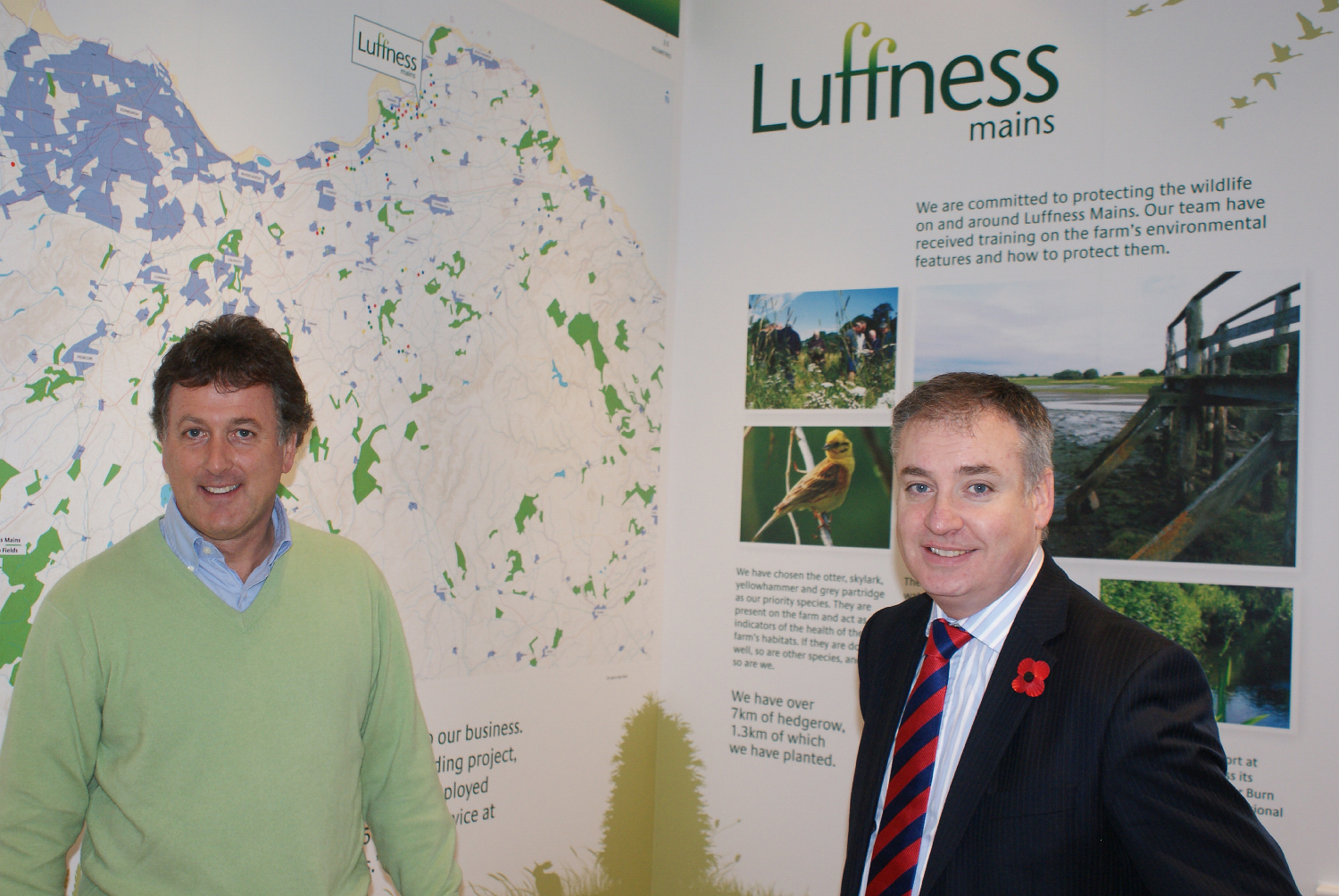



It has been useful when we have hosted a couple of BBC productions, The Great British Food Revival with Greg Wallace and How Scotland Works with the CEO of the world’s biggest potato seed company from Shandong, China.
Aberlady Gala has been supported by us for many decades, providing tractors and flatbed trailers for floats for the local Aberlady primary school, Brownies and other groups to ride on for the Gala Procession

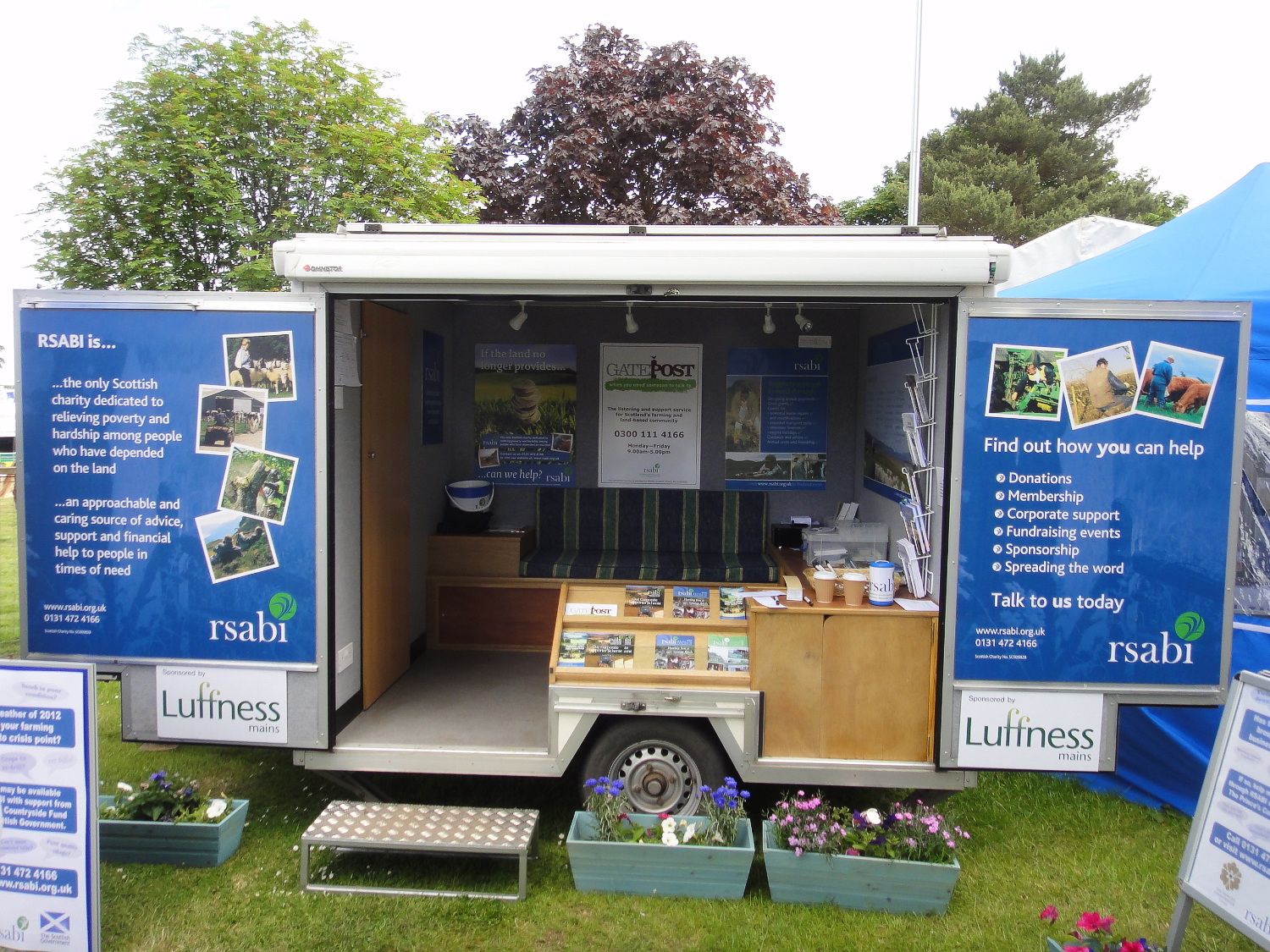
We are also big fans of the rural charity RSABI and have sponsored their trailer
Field Margins & Hedgerows around the farm provide many benefits to wildlife and we actively provide safe nesting sites for priority species such skylark, yellowhammer and grey partridge together with bee friendly margins and to help to explain what we do to the walking public coming through the farm on our private road we have LEAF Boards to explain the environmental features and wildlife etc.








Water Courses are important at Luffness Mains as we have a SSSI at Aberlady Bay and this is fed by the West Peffer Burn running through the farm, which we need to protect from runoff of anything that could harm the water quality, which is one reason for having large field margins alongside watercourses
Precision Farming using satellite technologies is what farmers do today to make a good job of farming with minimal inputs of fertiliser, sprays and so on. We can also look at crops from satellites as well as steer our equipment accurately in fields





Renewable energy is created on the farm with small wind turbines to reduce the carbon footprint of the new tattie cold store were installed and hugely offset the energy used to cool the store of tatties over winter.
Waste recycling is important especially for carrot sheeting over winter.


